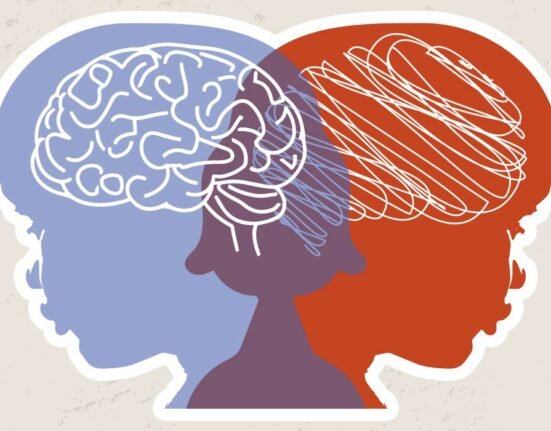“I don’t know what’s happening. My stomach hurts badly. I can’t breathe, I can’t stand. I am feeling very hot. Neither I want to do anything, nor go anywhere.”
“My hands are shaking, I can’t write anything, I don’t remember anything.”
These were the words of an “A+” student of an English school who refused to appear for exams to the extent that he refused to come out of his bedroom. Started talking loudly alone, pulling his hair, twisting the fingers of his right hand, stopped talking to anyone and stopped eating, sleeping, changing clothes, being unable to communicate etc. Such a condition is a big concern in the present-day scenario when the exams are approaching. Every child is under great pressure to fight his own battle. On the other hand, parents are getting short of skills to handle such a situation.
Test anxiety is “an uneasiness or tensions that can interfere or even impair a test-taker’s ability to think and perform on a test”. Test anxiety is a form of Performance anxiety that refers to self-consciousness and anxiousness about the quality of one’s performance- an awareness that hinders performance instead of helping.
Symptoms of testing anxiety are manifested as nervousness before and during exams, muscular tension, pain in various parts of the body, increased sweating, frequent or constant headaches, butterflies in the stomach, feeling dizzy or faint, feeling tired constantly, restlessness, inability to remember, lack of proper sleep, loss of appetite or excessive eating, feelings of empty-headedness, negative thinking, irritation, and constant sadness. Under such stressful conditions, a series of cognitive distortions take place such as: “I am stupid”, “I’ll fail”, and “I will never be able to do this”.
Their mental filter operates negatively and anticipates the worst possible consequences. They start overestimating the possible negative outcomes. Overestimating means that the student thinks the odds of a bad thing happening are much greater than they are. Whenever they are unaware of what’s going to happen, they automatically think of the worst scenario. Usually, they picture the worst possible grade. They think they would disappoint everyone (Parents, teachers, themselves) and their future which relies on their grades would be dark.
Often student acts as if one bad test is going to ruin their whole life. If they fail the exam they will flunk the course. Such anxiety hurts their self-confidence, and self-esteem, which contributes greatly to the low score. Instead of feeling challenged by the prospect of success, they become afraid of failure. At times, it is inexplicable to state a reason for such an anxious attitude before or during an exam, especially for bright and hardworking students.

Students tend to become so nervous that when they face a blank sheet, their mind goes blank even if they are well prepared. Therefore, instead of going through all these pains, many times they would prefer to avoid such situations and fail. Peer pressure, competition among the peer group, high parental expectations, high self-expectations, high standards of educational systems, and students’ general attitude towards examination all contribute to generating such reactions.
Some researchers give a physiological explanation for test anxiety. According to them, when a child prepares for a test, the information is stored in short-term memory. The area of the brain that controls short-term memory is also the centre for emotion. Thus, when a student becomes anxious during a test, the emotional upheaval overrides their ability to retrieve the information from short-term memory.
How to deal with such Anxiety?
There are certain techniques to minimize performance anxiety among students and can be roughly categorized as:
General Study Techniques:
- Proper scheduling over some time. Time management is the key point for studying effectively.
- Focus on understanding the material rather than memorizing
- Use of Visual aids (flashcards, charts, small notes)
- Daily revision.
- Write and learn more than read and learn.
- Short breaks in between to have some cognitive shift
- Take Proper and enough rest especially a day before the exam.
Test-taking Techniques:
- Take three to four deep breaths before starting the paper.
- Put down the pen and first go through the paper carefully
- Start at your own pace, slowly and carefully.
- Set a time frame according to questions.
Relaxation techniques:
- Practice deep breathing to reduce anxiety.
- Take proper breaks to do something else to relax (music, TV, talk to somebody)
- A little exercise or a short walk always helps to relax and have a change of mood.
Parental Support:
- Active involvement and the presence of the parent is always helpful.
- Always be encouraging. If the child is avoiding help them to face the challenge.
- Help them in learning, joining them in studying, asking questions; reviewing the material, and guiding them through difficult parts.
- Often initiate a dialogue with them, discussing their problems and how they feel about them.
Professional help:
- If the symptoms of anxiety are beyond control then parents, as well as students, should seek professional help.
- Biofeedback Therapy helps the child to understand his physical reactions under stress and helps them to control them voluntarily.
- Various scientific techniques of relaxation facilitate anxiety reduction and self-control.
- Psychotherapy helps them to gain insight into their cognitive distortions, psycho-physiological effects of stress, and in turn effects on their complete behaviour.
Read More: Anxiety: Symptoms, Causes and Intervention













Leave feedback about this